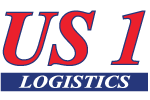The logistics and transportation industry offers numerous career paths, but one of the most appealing for those seeking flexibility and growth is becoming an independent  freight agent. Unlike freight brokers, independent freight agents often work under the authority of larger brokerage firms while managing their own clients and shipments. But is this path right for you? In this article, we’ll explore the pros and cons of working as an independent freight agent and how it compares to joining a larger brokerage firm.
freight agent. Unlike freight brokers, independent freight agents often work under the authority of larger brokerage firms while managing their own clients and shipments. But is this path right for you? In this article, we’ll explore the pros and cons of working as an independent freight agent and how it compares to joining a larger brokerage firm.
What Is an Independent Freight Agent?
An independent freight agent connects shippers (companies that need to transport goods) with carriers (trucking companies or other transport services) to move freight efficiently. The key difference between a freight agent and a freight broker is that brokers hold a brokerage license, while agents work under the broker’s authority.
Independent freight agents have the freedom to work for themselves while still benefiting from the resources of larger brokerages. They find their own clients, negotiate rates, and handle logistics, but without the need for licensing or as much overhead as starting a full brokerage business.
Pros of Independent Freight Agent Jobs
1. Flexibility and Independence
One of the biggest advantages of independent freight agent jobs is the freedom to work on your own terms. You get to set your own schedule, choose which clients to work with, and decide how to run your business.
- Pro Tip: This flexibility can be especially appealing to those looking for a work-life balance, as you’re not bound by traditional office hours.
2. High Earning Potential
Unlike salaried positions, most freight agent jobs are commission-based, meaning the more freight you move, the more you earn. Independent agents typically keep a higher percentage of the commission compared to freight agents working for larger firms.
- Pro Tip: With effort, you can grow your client base and maximize your commissions, potentially earning significantly more than you would as an employee at a larger brokerage.
3. Low Start-Up Costs
Starting out as an independent freight agent has relatively low overhead compared to launching a full brokerage. You don’t need to worry about costly brokerage licenses, bonds, or setting up your own freight management systems since you’re operating under a licensed freight broker.
- Pro Tip: Many freight brokers looking for agents offer resources such as software, load boards, and administrative support, reducing the financial barriers to entry.
4. Opportunity for Growth
As an independent agent, you have full control over growing your business. You can expand your client list, build relationships with more carriers, and eventually manage your own team of agents if desired. The more effort you put into networking and finding freight agent opportunities, the more you can grow.
- Pro Tip: The transportation industry is expanding, and freight broker agent jobs offer a pathway to capitalize on this growth while building your own business.
Cons of Independent Freight Agent Jobs
1. Income Can Be Unpredictable
While the commission-based nature of independent freight agent jobs offers high earning potential, it also comes with uncertainty. You may have months with excellent revenue and others where business is slow. This variability can make budgeting difficult, especially if you’re just starting out.
- Con Tip: It’s important to have financial reserves and be prepared for fluctuations in income, particularly in the early stages of your career.
2. No Employee Benefits
When you work as an independent agent, you’re essentially a self-employed contractor. That means you won’t receive traditional employee benefits like health insurance, paid time off, or a retirement plan. You’ll need to account for these additional expenses on your own.
- Con Tip: Research affordable health care plans for freelancers and set up a retirement savings account to plan for your future.
3. You Handle Your Own Marketing
Finding clients as an independent freight agent is your responsibility. Unlike working for a larger firm, where you might have leads provided to you, you’ll need to network, market your services, and build relationships with shippers and carriers on your own.
- Con Tip: Invest time in networking through industry events, online platforms, and freight broker agent opportunities to consistently find new clients.
4. Reliance on a Freight Broker
While you operate independently, you’re still working under the authority of a freight broker. This means you’ll be subject to their rules, commission splits, and the resources they provide. Additionally, if the broker’s reputation is damaged, it could affect your business.
- Con Tip: Carefully research brokers before partnering with them. Choose freight brokers looking for agents that offer fair commissions and provide ample support.
Working for a Larger Brokerage Firm: Pros and Cons
Advantages of Joining a Larger Brokerage Firm
- Steady Income: Working directly for a larger brokerage firm may offer more financial stability, with a combination of salary and commission.
- Resources Provided: Firms often provide tools, leads, and administrative support, making it easier to focus solely on moving freight.
- Training Opportunities: Many trucking companies’ agent programs offer training, mentorship, and opportunities for career advancement.
Disadvantages of Working for a Larger Firm
- Lower Commissions: Agents working for large firms may earn less because the company takes a larger percentage of the commission.
- Less Flexibility: You’ll likely need to adhere to set hours, work schedules, and client lists, leaving less room for personal autonomy.
Is Becoming an Independent Freight Agent Right for You?
If you’re a self-starter who values flexibility, independence, and high earning potential, pursuing independent freight agent jobs might be a great career path. However, it’s important to weigh the unpredictability of income and the lack of benefits.
For those seeking more stability, working with a larger brokerage firm or trucking agent jobs may offer the steady income and resources that align better with your goals.
Finding the Best Freight Agent Opportunity
Choosing between working as an independent freight agent or joining a larger firm depends on your personal preferences, financial situation, and long-term career goals. Freight broker agent jobs are plentiful, and with the growing demand in the logistics industry, now is a great time to enter the field.
Whether you choose to work independently or with a firm, there are plenty of freight agent opportunities available for motivated individuals looking to make their mark in the transportation industry.
Final Tip: Start by exploring freight brokers looking for agents and evaluating the freight broker agent opportunities that fit your career ambitions. If you’re ready to take control of your future, the freedom and earning potential of becoming an independent freight agent could be the perfect path for you.


Recent Comments